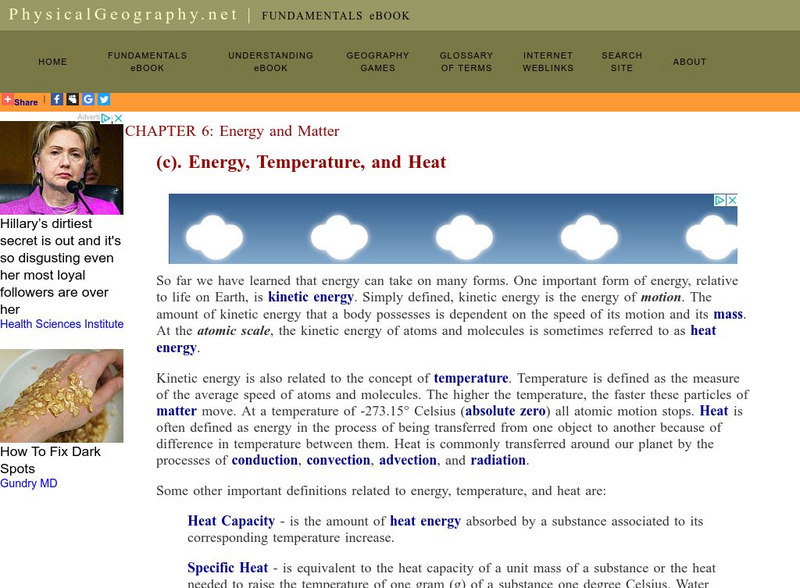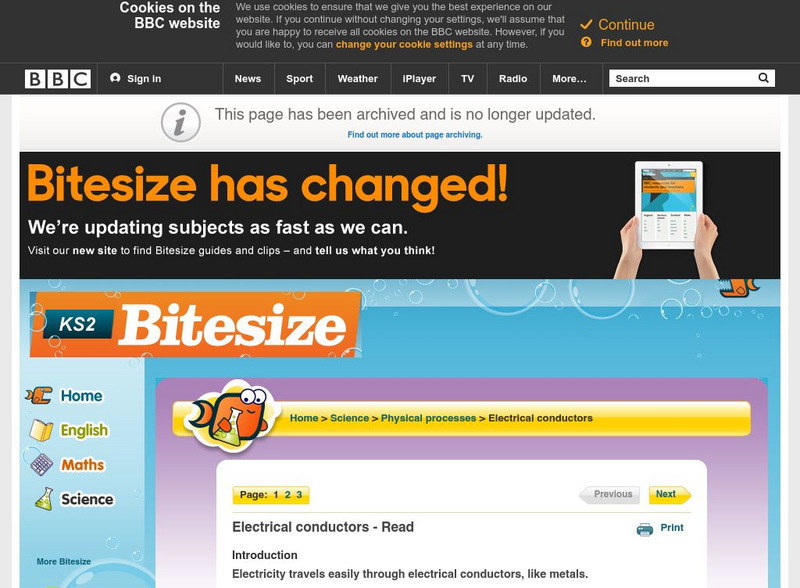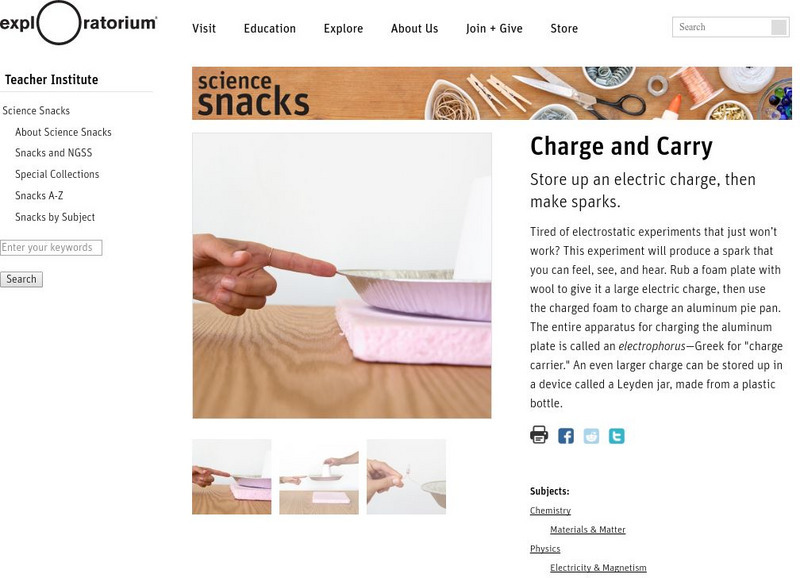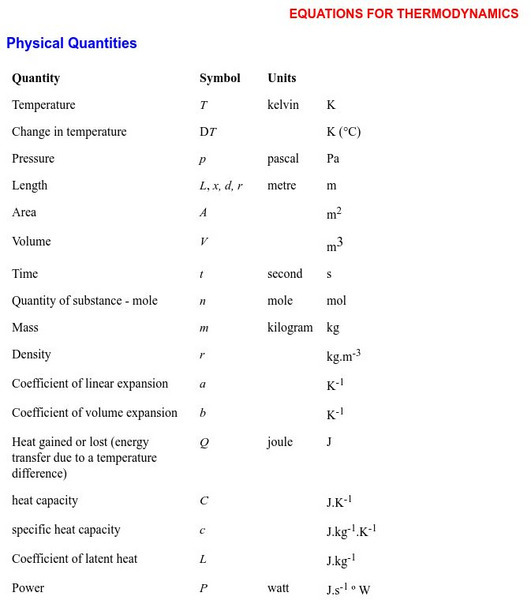Physics4kids
Physics 4 Kids: Thermodynamics Quiz
Take this ten question multiple choice quiz over thermodynamics.
ClassFlow
Class Flow: Temperature Heat and the Sun
[Free Registration/Login Required] In this lesson students are introduced to temperature, heat and solar radiation. Students learn the methods of measuring and converting temperature between different units and identifying factors which...
ClassFlow
Class Flow: Thermal Energy
[Free Registration/Login Required] This flipchart reviews properties of thermal energy. Examples of Electrical energy, light waves, sound waves and conduction, convection and radiation are given.
Other
Fund. Of Phys. Geography/energy, Temperature, and Heat
A page describing (in part) the distinction between energy, temperature and heat. Includes a graphic illustrating the quantity of energy needed to transform water between various states. Methods of thermal energy transfer (convection,...
Other
Characteristics of Energy and Matter
A lengthy page from the Fundamentals of Physical Geography site. Energy is distinguished from matter, and the different forms of energy are identified and discussed. Four types of heat transfer (convection, advection, conduction,...
Physics Classroom
The Physics Classroom: Static Electricity Review
This review from the Glenbrook South High School provides a series of questions on various topics associated with static electricity (such as electrical insulation). Answers and explanations are hidden, yet easily accessed from within a...
ClassFlow
Class Flow: Heat
[Free Registration/Login Required] This flipchart investigates how heat is produced and the effects of heating and cooling and demonstrates how a change in temperature indicates a change in heat. Students will sequence objects according...
BBC
Bbc Schools: Ks2 Bitesize: Science: Materials: Keeping Warm
Easy-to-understand overviews, with illustrations, a game, and quiz questions, about thermal conductors and insulators.
BBC
Bbc Schools: Ks2 Bitesize: Science: Physical Processes: Electrical Conductors
A review of electrical conductors and insulators, with diagrams, activities, and quiz questions.
Exploratorium
Exploratorium: Science Snacks: Charge and Carry
This site from The Exploratorium Museum is a full description of a short activity. An electrophorus plate and a Leyden jar are made. The electrophorus is charged by induction. Its charge is transferred to the Leyden jar by conduction...
Physics Classroom
The Physics Classroom: Negatively Charged Electroscope
From the Multimedia Physics Studios of the Glenbrook South High School. A tutorial containing a simple animation demonstrating the grounding process for a negatively-charged electroscope. The movement of electrons between the...
Science4Fun
Science4 Fun: Heat
What is heat? Illustrated discussion of how heat is transferred and its effect on the states of matter.
Science4Fun
Science4 Fun: Heat Transfer
What is heat transfer? Illustrated discussion of the three methods of heat transfer: conduction, convection, radiation.
University of Sydney (Australia)
Thermal Physics Module/heat Transfer 1 [Pdf]
The first of two pages discussing the different forms of thermal energy transfer. Equations expressing the rate of energy transfer by each of the methods are provided and discussed.
Museum of Science
The Atoms Family
Let this classic family of monsters guide you as you learn about energy. Interactive exercises, experiments, and demonstrations help to build knowledge and raise questions.
Science and Mathematics Initiative for Learning Enhancement (SMILE)
Smile: Electrostatics
A teacher lesson plan which includes activities pertaining to common methods of charging objects - induction, conduction, and friction.
Other
Applied Thermodynamics: Heat Transfer
Heat transfer, rates of heat exchange,conduction, radiation and convection are defined and discussed at this site from Applied Thermodynamics. Well illustrated.
University of Sydney (Australia)
Equations for Thermodynamics
An exhaustive list of equations and formulas which are commonly used in thermal physics (including equations for triple point). Equations are organized according to category. Meaning of the symbols is clearly stated.















